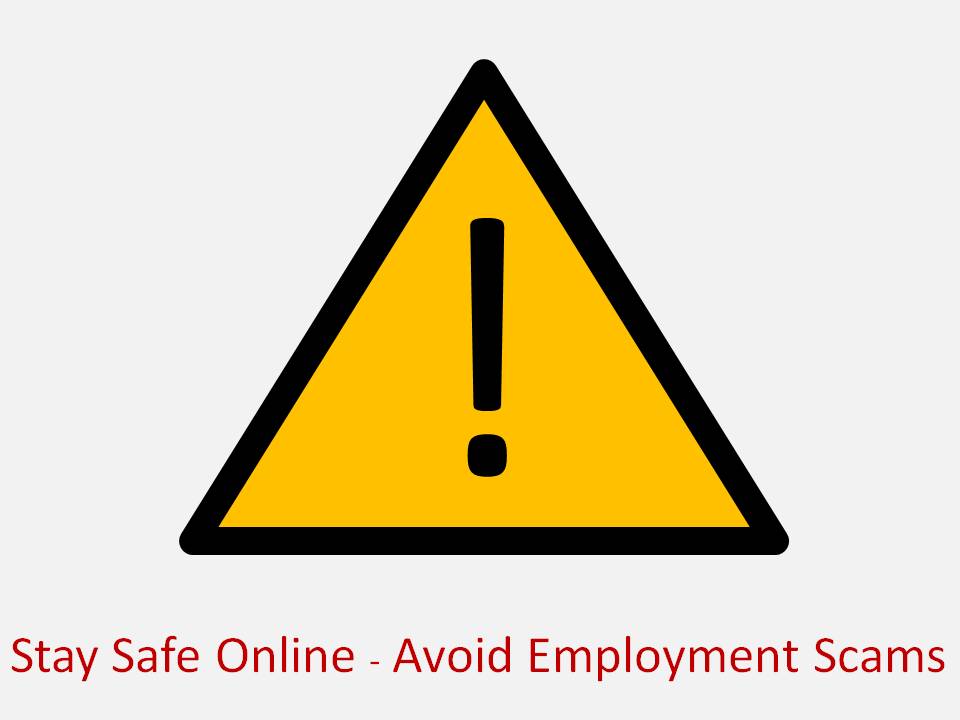When looking for work, especially if you've been out of work for some time, you may begin to lower your aspirations and consider anything and everything. And, in lowering your expectations, you might start to look at job postings on free sites, such as Gumtree. But you should always take care not to fall victim to scammers who may try to take advantage of your vulnerability.
Here are some pointers to help you avoid being scammed:
- Genuine recruiters will not ask you for money. If you're asked to pay for security checks, visas or training, you should always check out the employer to establish whether they are real and the job actually exists.
- Are you expected to handle money through your personal bank account? This should ring alarm bells and you could end up being used to handle money illegally - which is known as being a money mule and can lead to prosecution.
- Does the employer have a website? Is their email linked to a genuine domain? Most employers wouldn't use a hotmail or yahoo email address.
- Have they provided a business address and telephone number and, if so, do they check out? Make sure that the business really does exist - in bricks and mortar. If they claim to be a limited company, they should be registered at Companies House and it just takes a few minutes to check.
- Research the internet - check out the postcode on Google Maps - check out the telephone number on Google - see if there's any negative information attached to it.
- You should also check social media platforms - eg LinkedIn.com, Twitter.com or Facebook.com to find evidence - good or bad - of the hiring company and/or recruiter.
- Will the recruiter or employer meet you in person - at their premises? It's sometimes acceptable to meet at a hotel, coffee bar or rented office premises - especially for regional or field sales roles - but you should still check out whether the business is real and not just a business mailing address or telephone answering service.
- Is the recruiter or employer contacting you at irregular hours? A genuine business would have regular office hours. Contact during the evenings and weekends would be a little suspicious - unless you've previously agreed to this.
- Don't conduct the entire recruitment process online. If the hirer wants to conduct everything on line or over the phone, be wary. Most employers will want to meet you in person.
- If you agree to meet a potential employer at a private address, always ensure that someone knows exactly where you are going - provide a friend or relative with the details and agree to contact them immediately before and after the meeting takes place.
- If you're not meeting the employer at their premises, arrange to meet in a public place where you will be safe.
- Keep your personal information safe. Never provide bank details, date of birth or NI numbers - until you have been offered and accepted a role. Don't provide your home address either. Employers don't need this personal information until you are being added to their payroll.
- If you're uploading your CV to a job site, just include your town and county - not your full address.
If a job sound too good to be true, then it probably is!
The majority of employers and recruiters are legitimate but you must be aware that there will also be people who would seek to exploit your vulnerability or naivety.
For more information on how to avoid employment scams, visit http://www.safer-jobs.com/
Stay safe online and get in touch if you need our help. Email: mail @ compellingcvs.co.uk
Click here to read more of our blogs, or click on the categories over on the right hand side of this page

 RSS Feed
RSS Feed
